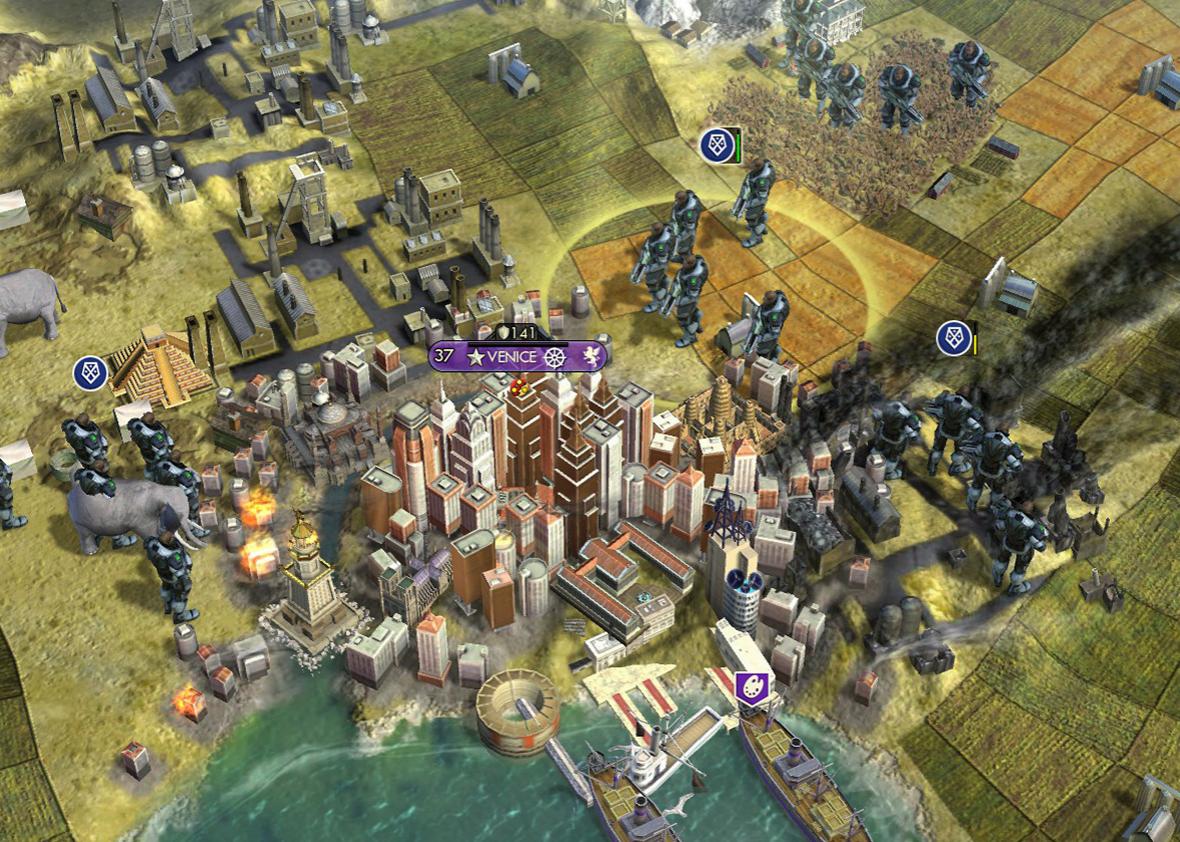The Paris climate talks have now reached the final, most critical hours. At stake: How to steer the global economy away from fossil fuels as quickly as possible and preserve the planet’s habitability for future generations.
As I wrote on Wednesday, things are going unexpectedly well so far, thanks in large part to the emergence of a broad negotiating bloc of diverse countries that includes the world’s biggest historical emitters—the United States and the European Union—as well as some of the most vulnerable countries, like the Marshall Islands. The group supports a legally binding agreement in Paris with a science-based and extremely bold temperature goal, in addition to a five-year review cycle to increase emission reduction pledges and to make sure all countries are doing what they said they would. The bloc is calling itself the “High Ambition Coalition”—and is working to force major developing countries like India and China to step up their carbon-cutting plans.
As you might imagine, India and China have a different view:
In reality, what all of these countries want is power. With so much at stake in Paris—like, whether the oceans will be able to sustain life as we know it within our lifetimes, not to mention the continuation of a healthy global economy—it’s no wonder the talks are beginning to resemble an abstract computer strategy game.
The series of international climate negotiations, which have gone on for more than two decades, have an interesting history of such shifting alliances. If you’re addicted to turn-based strategy games, this “enemy of my enemy is my friend” style of global politics is probably familiar. Take Civilization, probably the most popular series of world-domination strategy games, with more than 31 million copies sold since its launch in 1991.
Buckle up, because I’m about to go full nerd here.
In a typical game of Civilization, a player competes with a handful of other A.I.–controlled figures from world history to “build a civilization that will stand the test of time.” The games start with the discovery of agriculture, and players can build cities, explore the planet, compete for resources, wage war, invest in science and the arts, and engage in diplomacy. It’s that last part that’s particularly interesting in this case: If you’ve built a nation with a strong economy, it’s relatively easy to buy off nominally independent “city-states” and acquire their votes to advance your agenda in the game’s version of the United Nations, typically providing a quick path to victory.
This appears to be very similar to the strategy the U.S. and Europe are using in the Paris climate talks. In exchange for scaled-up financial support—which many small island states would like to use to, you know, not sink into the ocean—the larger countries have received additional muscle with which to pressure India and China.
Here’s why I think this group has formed: Supporting small island states by literally building them new and taller islands would be much cheaper in the long-run than providing support for the increasingly upwardly mobile major developing countries. Though India in particular occupies the moral middle ground in Paris, the emergence of the High Ambition Coalition has pushed it firmly on the defensive. Other players, like Australia, have been shunted to the sidelines.
The Guardian reports that the High Ambition Coalition has been forming in secret for months now, revealing itself publicly for the first time Wednesday. That may be because, in the latest draft of the Paris negotiating text, it will take only 50 or 60 countries to approve the overall deal. The High Ambition Coalition, by various accounts, may already have more than 90, with new members being added in real time.
Will the strategy work? It’s hard to say. The coalition has so far received mixed reviews from environmental groups on the sidelines of the talks, with many groups demanding more details on the scale of financing the U.S. and Europe have pledged to the vulnerable countries before throwing in their full support.
If the Paris talks fail, it will be because, in part, India and China called the bluff of the High Ambition Coalition. And what then? Hundreds of years from now, here’s one extreme scenario borrowed from Civilization: The latest edition in the Civ series, Civilization: Beyond Earth, imagines a post-apocalyptic future in which humanity is forced to abandon the planet after an intentionally vague worldwide cataclysm known as “The Great Mistake.” At a panel discussion at a gaming conference last year, lead designers Will Miller and David McDonough revealed that the Great Mistake involved, you guessed it, runaway climate change.
